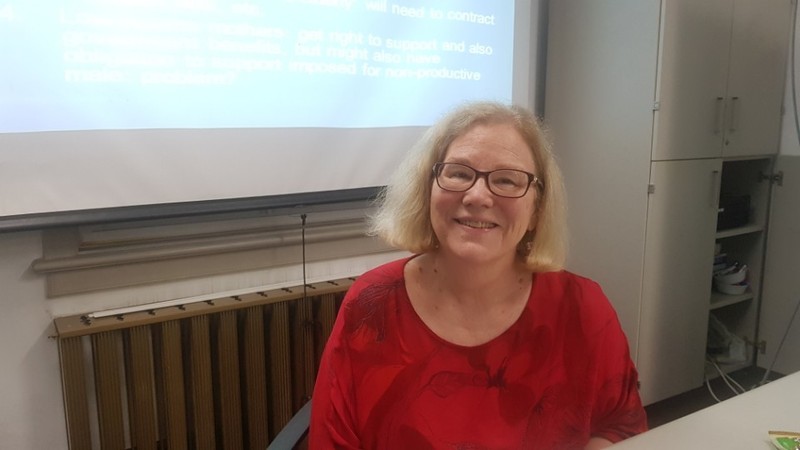 |
|
Professor Cynthia Grant of Cornell Law School
|
Professor Cynthia Grant of Cornell Law School “impressed” with Korean women
How does South Korea’s #MeToo movement look to a scholar who has long been a student of feminist jurisprudence? “The most encouraging thing was that tens of thousands of women have participated in the demonstrations held since #MeToo began. There was a Women’s March after Donald Trump was elected as president of the US, but that was already a year and a half ago,” said Cynthia Grant Bowman, a professor at Cornell Law School, with a laugh. “I only saw photographs [of the demonstrations around Hyehwa Station], but I was impressed to see Korean women desiring change and dedicating themselves to gender equality.” “I’ve been able to feel international sisterhood and solidarity from the #MeToo movement that has taken place around the world,” said Bowman, who was in South Korea to attend a lecture on June 26 that was jointly organized by the South Korean office of an international community of thinkers called Meridian 180, along with the Asian Center for Women’s Studies and the Institute for Gender and Law, both based at Ewha Womans University. Bowman, who has a Ph.D. in political science from Columbia University and a J.D. from Northwestern University, is an authority in the field of feminist jurisprudence. Feels “international sisterhood and solidarity from the #MeToo movement” around the world She has published extensively on topics including female jurists, sexual harassment and remedies for victims of sexual abuse. In 1994, she published Feminist Jurisprudence, which laid the theoretical foundation for the field. Bowman, who lectured at Ewha Womans University on June 25 and 26, said that the main reason the #MeToo movement began in the US was the confluence of Donald Trump’s election as president and women’s anger provoked by sexism. “The fact that Trump could become president after bragging that famous people like him could ‘grab women by the pussy’ dramatically showed the imbalance of power between the sexes. The result was that women’s claims about being victims became much more credible than before,” she said. The biggest difference between the #MeToo movement and the campaign against sexual violence that has continued for decades, Bowman said, is that society has started to believe victims. “There was this assumption that women who talked about being the victims of sexual violence were all either oversensitive, disgruntled with their organization or angling to get money out of men. But that’s not the case anymore. Believing that sexual violence can happen to anyone and that women can be trusted when they talk about being victims is a major change in attitude. This is also helping to compensate the bias of courts and juries that have been suspicious of what victims have to say,” Bowman said. Bowman also expressed her concerns about the backlash that has grown more severe since the #MeToo movement: “The backlash is basically a very old challenge that has always been side by side with feminism. Even in the US, the reality is that people still come under attack when they identify themselves as a feminist.” “Thanks to the struggle and effort of many women, we’re entering an environment in which the values of feminism are gradually being accepted more than before. We have no choice but to keep resisting and fighting for gender equality, which is the obvious goal of feminism,” she said. Bowman has recently been researching ways to broaden the legal guarantees for cohabiting couples. Even cohabiting couples should be guaranteed the legal rights of married couples if they have been cohabiting for at least two years or if they have children, Bowman believes. This parallels remarks made by South Korean President Moon Jae-in on June 24 that the government should “look into ways for the state to support cohabiting couples who have children.” Protecting cohabiting couples is connected with women’s rights “According to US law, cohabiting couples are not recognized as having any rights when it comes to dividing assets in a breakup or inheriting assets when a partner dies. The most vulnerable groups during a breakup are the women and children. When women are not protected, children are sure to be affected as well,” Bowman said. She emphasizes that protecting cohabiting couples is connected with women’s rights. Since the #MeToo movement, many women are determined not to return to the life they used to live. Bowman herself stressed that solidarity and social support for victims will continue. “Victims of sexual violence don’t feel alone anymore. One after another, women are talking about what they’ve suffered, and an atmosphere of trust and support has formed around them. The #MeToo movement will keep going,” she said. By Hwang Geum-bi, staff reporter Please direct comments or questions to [english@hani.co.kr]






